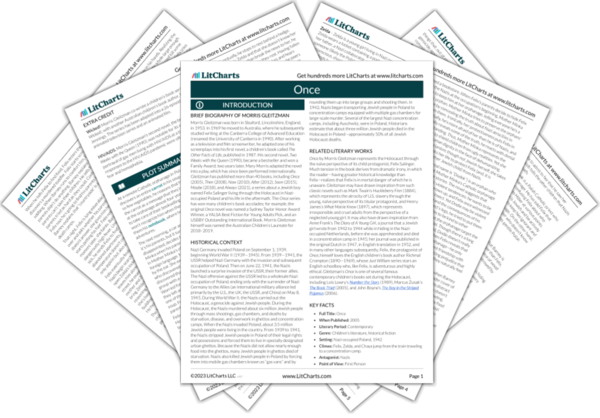Sadly and ironically, Dodie and Felix think of the orphanage’s bullies, not the visiting Nazis, as “the torture squad,” illustrating their ignorance of the atrocities the Nazis are perpetrating. Dodie’s desire to rescue Jankiel from the bullies reveals that despite his violent tendencies, he has some good moral instincts too. Felix’s use of a complicated lie to protect Jankiel shows that stories can be tools for affecting reality as well as escapes from reality, while one bully’s retort that it’s “just one of [Felix’s] stories” reveals that Felix is known in the orphanage for his tall tales.
